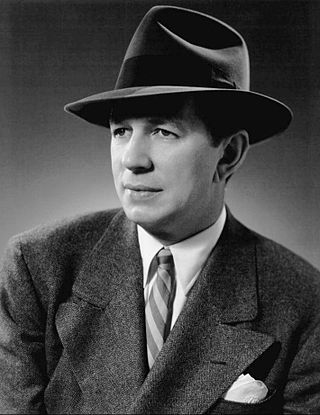Related Research Articles

Elvin Ernest Hayes, nicknamed "the Big E", is an American former professional basketball player and radio analyst for his alma mater Houston Cougars. He is a member of the NBA's 50th and 75th anniversary teams, and an inductee in the Naismith Memorial Basketball Hall of Fame. Known for both his offensive and defensive prowess, Hayes is often regarded as one of the best power forwards in NBA history. Hayes is also known for his longevity, being third all-time in NBA minutes played, and missing only nine games during his 16-season career.

Robert Arthur Elson was a pioneering American sportscaster who was the voice of the Chicago White Sox for all or parts of four decades. Known as "The 'Ol Commander", he broadcast an estimated 5,000 major league baseball games. In his prime, was among the leading play-by-play men in the game. In 1979, he received the Ford C. Frick Award from the Baseball Hall of Fame for his excellence and longevity in the industry.

The NHL on USA was the de facto title of a television show that broadcast National Hockey League games on the USA Network.
Major League Baseball on Mutual was the de facto title of the Mutual Broadcasting System's (MBS) national radio coverage of Major League Baseball games. Mutual's coverage came about during the Golden Age of Radio in the 1930s, 1940s, and 1950s. During this period, television sports broadcasting was in its infancy, and radio was still the main form of broadcasting baseball. For many years, Mutual was the national radio broadcaster for baseball's All-Star Game and World Series.

The Seattle Sounders were an American professional soccer team based in Seattle, Washington. Founded in 1974, the team belonged to the North American Soccer League where it played both indoor and outdoor soccer. The team folded after the 1983 NASL outdoor season but the name was revived in 1994 for a lower-division team and Seattle Sounders FC of the top-flight Major League Soccer, founded in 2007.
The NBA Radio Network was the official national radio broadcaster, distributed by Public Interest Affiliates (PIA), a Chicago radio syndication company, of National Basketball Association games from the 1990–91 through the 1994–95 season. NBA Radio was ultimately supplanted by ESPN Radio.
As one of the major sports leagues in North America, the National Basketball Association has a long history of partnership with television networks in the US. The League signed a contract with DuMont in its 8th season (1953–54), marking the first year the NBA had a national television broadcaster. Similar to NFL, the lack of television stations led to NBC taking over the rights beginning the very next season until April 7, 1962 - NBC's first tenure with the NBA. After the deal expired, Sports Network Incorporated signed up for two-year coverage in the 1962–63, 1963–64 season. ABC gained the NBA in 1964, the network aired its first NBA game on January 3, 1965, but lost the broadcast rights to CBS after the 1972–73 season with the initial tenure ending on May 10, 1973.
On December 14, 1988, CBS paid approximately $1.8 billion for exclusive television rights for over four years. CBS paid about $265 million each year for the World Series, League Championship Series, All-Star Game, and the Saturday Game of the Week. It was one of the largest agreements between the sport of baseball and the business of broadcasting.
In 1950 the Mutual Broadcasting System acquired the television and radio broadcast rights to the World Series and All-Star Game for the next six years. Mutual may have been reindulging in dreams of becoming a television network or simply taking advantage of a long-standing business relationship; in either case, the broadcast rights were sold to NBC in time for the following season's games at an enormous profit.
From 1965 through 1975, in addition to the Saturday night game on CBC, Hockey Night in Canada also produced and broadcast a Wednesday night game on CTV, CBC's privately owned competitor; beginning in the 1975–76 NHL season, these midweek games began to broadcast by local stations. In 1970–71, the Vancouver Canucks joined the NHL, meaning that there were now three possible venues for an HNIC telecast.
During the 1979–80 and 1980–81 seasons, four more Canadian teams, the Edmonton Oilers, Quebec Nordiques, Winnipeg Jets, and Calgary Flames, joined the NHL. The Oilers and Flames were featured frequently as the two teams were contenders the 1980s; in contrast, as the Nordiques were owned by Carling-O'Keefe, a rival to the show's sponsor Molson and whose English-speaking fanbase was very small, the Nords were rarely broadcast, and never from Quebec City during the regular-season.
After Wayne Gretzky was traded to the Los Angeles Kings in 1988, CBC began showing occasional double-headers when Canadian teams visited Los Angeles to showcase the sport's most popular player. These games were often joined in progress, as the regular start time for Hockey Night in Canada was still 8 p.m. Eastern Time and the Kings home games began at 7:30 p.m. Pacific Time. Beginning in the 1995 season, weekly double-headers became permanent, with games starting at 7:30 Eastern and 7:30 Pacific, respectively. In 1998, the start times were moved ahead to 7 p.m. ET and PT.